
6G research on the rise: highlights of the Berlin 6G Conference
| Health & Medicine | Trade & Logistics | Mobility | Smart Home & Assisted Living | Data Management & Analysis | Human-Machine Interaction | Robotics | Sensors & Networks | Intelligent Networks | Press release
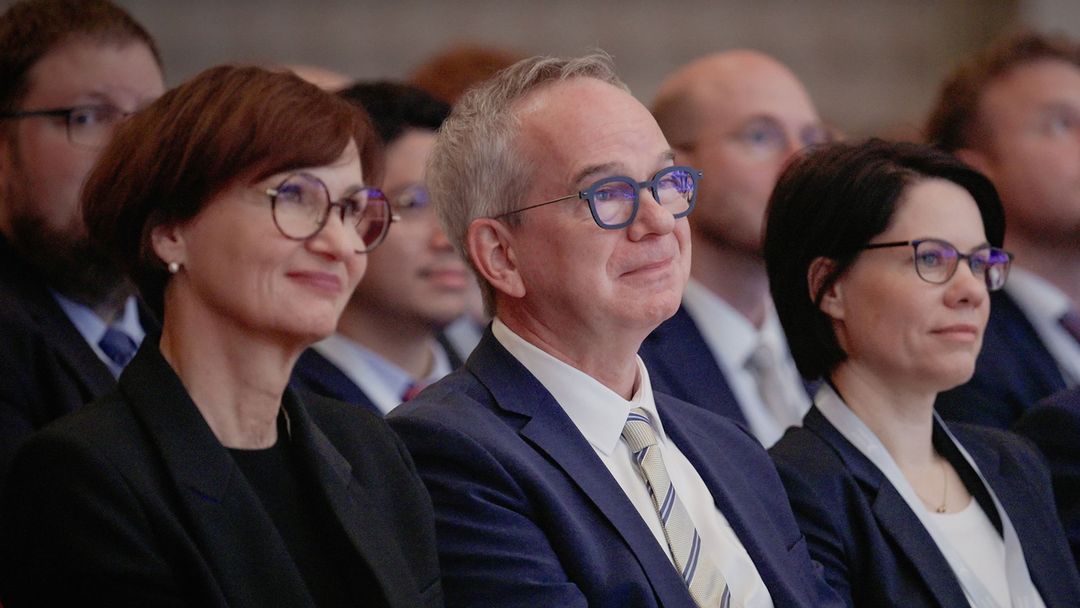
Numerous innovative applications and demonstrators were presented at the conference, impressively illustrating the current state of research into the upcoming 6G mobile communications standard. Hans D. Schotten from the German Research Centre for Artificial Intelligence (DFKI) emphasised the decisive advantages of 6G:
Networked robotics and teleoperations - insights into 6G
The demonstrators presented at the conference provided an insight into the current state of research into the mobile phone generation of the future. One highlight of the exhibition was networked, collaborative robotics, which showed how 6G can increase productivity in the workplace. Direct collaboration between humans and robots enables numerous new applications in production and care.
 © 6G-Plattform
© 6G-PlattformA demonstrator from DFKI showed the application of highly reliable and low-latency 6G technologies for teleoperation, in which surgical robots can be used in networked ambulances. This technology promises to significantly improve and increase the efficiency of medical care.
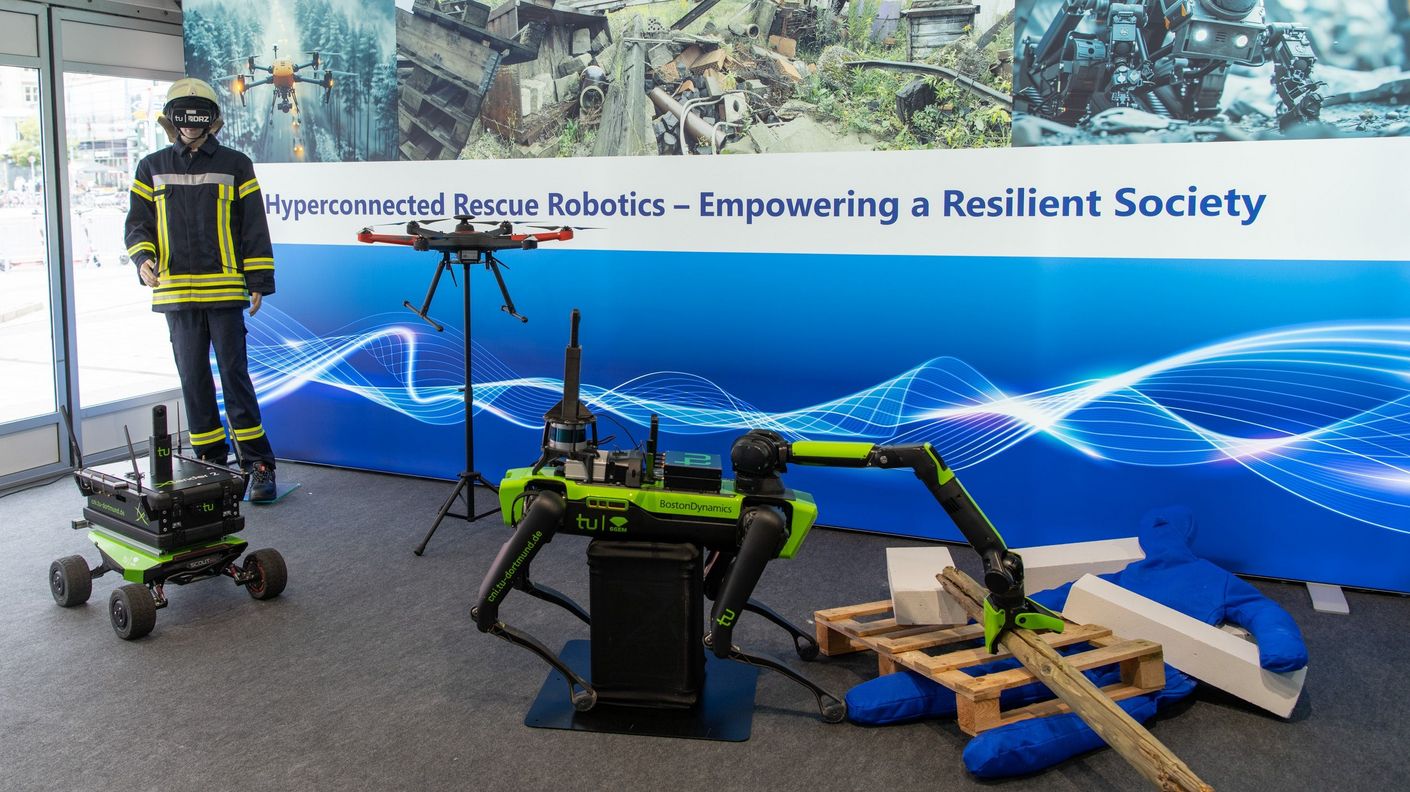 © 6G-Plattform
© 6G-PlattformAnother demonstrator visualised the immersive control of a team of robots on a rescue mission. In the future, these robots will be reliably networked with each other via a local ad hoc network and take on various tasks - from setting up the network to sensor-based reconnaissance and physical support for the rescue teams on site.
International cooperation and standardisation
The Berlin 6G Conference offered numerous presentations and discussion panels that provided an in-depth insight into international 6G research projects. The topics ranged from scientific contributions on the design of 6G to preparatory measures for standardisation and the promotion of start-ups.
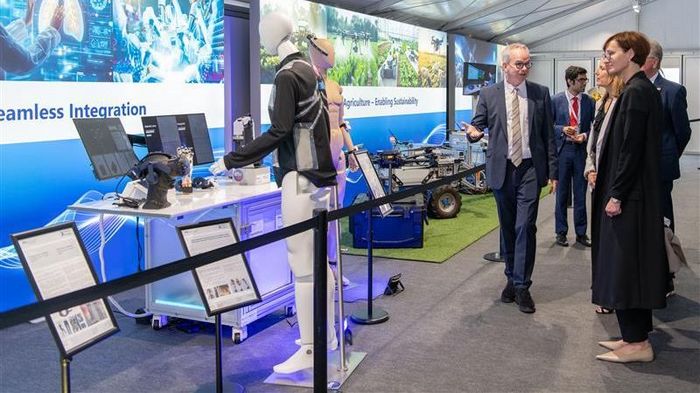 © Christian Schellenberger
© Christian Schellenberger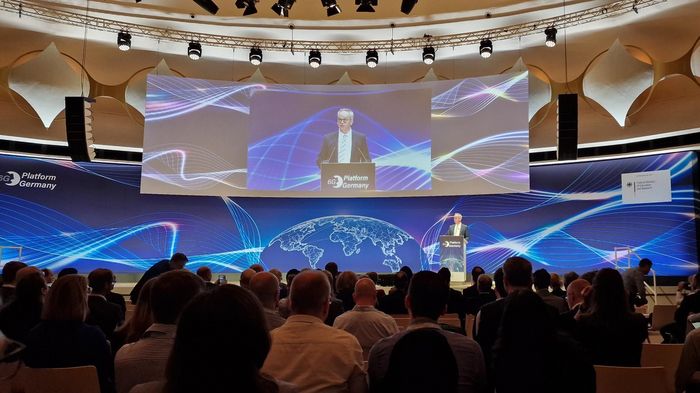 © Christoph Lipps, DFKI
© Christoph Lipps, DFKI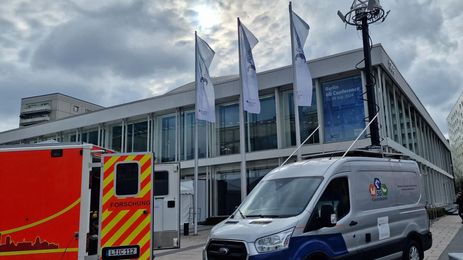 © Christoph Lipps, DFKI
© Christoph Lipps, DFKI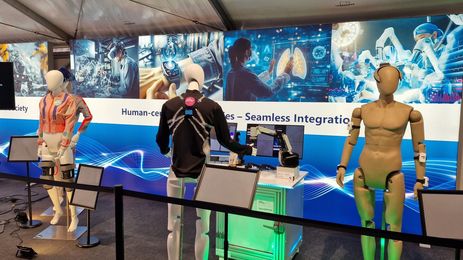 © Christoph Lipps, DFKI
© Christoph Lipps, DFKI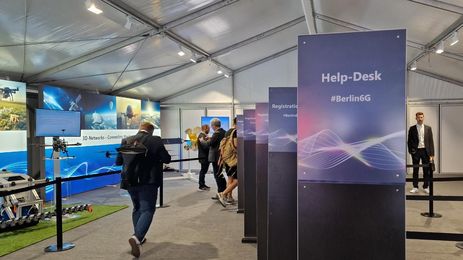 © Christoph Lipps, DFKI
© Christoph Lipps, DFKIContact:
Prof. Dr.-Ing. Hans Dieter Schotten
Head of Intelligent Networks, DFKI
- Hans_Dieter.Schotten@dfki.de
- Phone: +49 631 20575 3000
